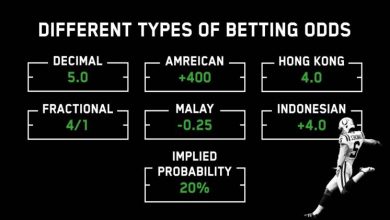Seeking Professional Help for Gambling Addiction Slot Gacor: Overcoming Gambling Problems

Gambling addiction, also known as compulsive gambling slot gacor or gambling disorder, is a serious condition that can have devastating effects on an individual’s financial, emotional, and social well-being. Recognizing the need for professional help is a critical step towards recovery and reclaiming control over one’s life. This article delves into the various aspects of seeking professional help for gambling addiction, providing a comprehensive guide to understanding the problem and exploring the available resources and treatment options.
Understanding Gambling Addiction
Before seeking help, it’s important to understand the nature of gambling addiction and its impact on individuals.
Defining Gambling Addiction
Gambling addiction is characterized by an uncontrollable urge to gamble, despite the negative consequences it may bring. This compulsion often leads to significant problems in personal and professional life.
Identifying Symptoms
Common symptoms of gambling addiction include preoccupation with gambling, the need to gamble with increasing amounts of money, repeated unsuccessful attempts to quit, and lying to hide gambling behavior.
Recognizing the Impact
The impact of gambling addiction extends beyond financial losses. It can lead to strained relationships, mental health issues such as depression and anxiety, and a diminished quality of life.
Professional Treatment Options
Seeking professional help is crucial for effectively addressing gambling addiction. Various treatment options are available to support recovery.
Therapy and Counseling
Therapy and counseling are fundamental components of gambling addiction treatment. They provide a safe space for individuals to explore their behavior and develop coping strategies.
- Cognitive Behavioral Therapy (CBT): CBT is a widely used therapeutic approach that helps individuals recognize and change negative thought patterns and behaviors associated with gambling.
- Individual Counseling: One-on-one counseling sessions offer personalized support, allowing individuals to discuss their specific challenges and develop tailored recovery plans.
- Group Therapy: Group therapy sessions provide a supportive environment where individuals can share their experiences and learn from others facing similar challenges.
Medication
In some cases, medication may be prescribed to help manage symptoms of gambling addiction, particularly if co-occurring mental health disorders are present.
- Antidepressants: Antidepressants can help address underlying issues of depression and anxiety that often accompany gambling addiction.
- Mood Stabilizers: Mood stabilizers may be used to manage mood swings and reduce the urge to gamble.
Support Networks and Community Resources
Building a support network is an essential aspect of recovery. Various community resources can provide ongoing support and encouragement.
Support Groups
Support groups offer a platform for individuals to share their experiences and receive support from others who understand their struggles.
Gamblers Anonymous (GA): GA is a well-known support group that follows a 12-step program, similar to Alcoholics Anonymous, providing a structured approach to recovery.
SMART Recovery: SMART Recovery offers a science-based program that focuses on self-empowerment and practical skills for managing addiction.
Family Support: Family members play a crucial role in supporting recovery. Family therapy can help improve communication and rebuild trust within the family unit.
Online Resources
Numerous online resources offer information, forums, and virtual support groups for individuals seeking help for gambling addiction.
- Educational Websites: Websites like the National Council on Problem Gambling provide educational materials and resources to help individuals understand and manage their addiction.
- Online Forums: Online forums offer a space for individuals to connect with others, share their stories, and seek advice and support.
Developing Coping Strategies
Effective coping strategies are essential for overcoming gambling addiction and preventing relapse.
Avoiding Triggers
Identifying and avoiding triggers that lead to gambling can help individuals stay on track with their recovery.
- Limiting Access to Gambling Venues: Limiting visits to places where gambling occurs can reduce the temptation to gamble.
- Managing Finances: Taking control of personal finances, such as limiting access to money and credit cards, can prevent impulsive gambling behavior.
Healthy Alternatives
Engaging in healthy activities can provide positive outlets and reduce the urge to gamble.
- Exercise: Regular physical activity can improve mental health and reduce stress, serving as a healthy alternative to gambling.
- Hobbies: Pursuing hobbies and interests can provide a sense of fulfillment and distract from the urge to gamble.
Stress Management
Developing effective stress management techniques can help individuals cope with the pressures that may trigger gambling behavior.
- Meditation and Mindfulness: Practicing meditation and mindfulness can help individuals stay present and manage stress more effectively.
- Time Management: Effective time management can reduce stress and create a structured routine that minimizes opportunities for gambling.
Long-Term Recovery and Maintenance
Recovery from gambling addiction is an ongoing process that requires long-term commitment and support.
Regular Check-Ins
Regular check-ins with a therapist or counselor can help individuals stay accountable and address any challenges that arise.
Continued Education
Continued education about gambling addiction and recovery can provide ongoing motivation and insight.
Support Systems
Maintaining a strong support system is crucial for long-term recovery. Staying connected with support groups and loved ones can provide the encouragement needed to stay on track.
Preventing Relapse
Preventing relapse is a critical component of maintaining recovery from gambling addiction.
Relapse Prevention Plans
Developing a relapse prevention plan can help individuals identify warning signs and take proactive steps to avoid relapse.
- Identifying High-Risk Situations: Recognizing situations that may lead to gambling can help individuals avoid or prepare for them.
- Developing Coping Mechanisms: Having effective coping mechanisms in place can provide alternatives to gambling when faced with high-risk situations.
Seeking Ongoing Support
Ongoing support is essential for preventing relapse. Regular attendance at support groups and therapy sessions can provide continuous encouragement and guidance.
Conclusion
Seeking professional help for gambling addiction slot is a vital step towards overcoming this challenging condition. By understanding the nature of gambling addiction, exploring treatment options, building a support network, and developing effective coping strategies, individuals can take control of their lives and achieve long-term recovery. It’s important to remember that recovery is a journey, and with the right support and commitment, it is possible to overcome gambling addiction and lead a fulfilling, balanced life.





